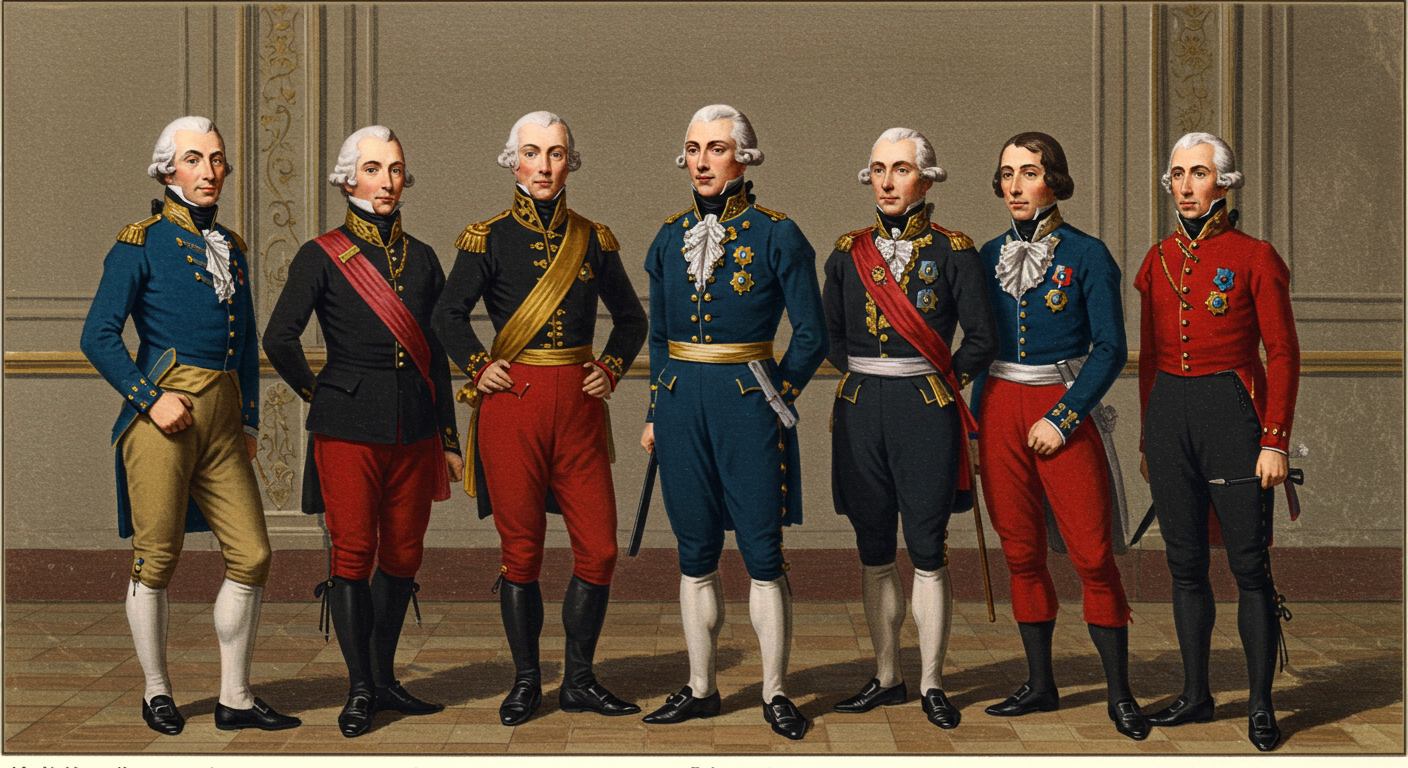The Congress of Vienna (1814-1815) was a defining moment in European history. After the Napoleonic Wars had reshaped the continent, European leaders sought to restore order and prevent future revolutions. French conservatives played a crucial role in this process, advocating for the return of monarchy, traditional institutions, and a rejection of liberal and nationalist ideas.
But what exactly did French conservatives believe? The statement that best reflects their view is:
“French conservatives after the Congress of Vienna favored rule by absolute monarchs.”
Let’s dive into the details of their beliefs, policies, and the challenges they faced.
The Goals of French Conservatives After the Congress of Vienna
French conservatives aimed to undo the effects of the French Revolution and Napoleon’s rule. Their primary objectives included:
- Restoring the monarchy under the Bourbon dynasty
- Strengthening traditional institutions, such as the Catholic Church and the aristocracy
- Suppressing liberal and nationalist movements that threatened the old order
- Maintaining a rigid social hierarchy where power remained in the hands of the elite
Their philosophy was simple: stability could only be achieved by returning to pre-revolutionary traditions.
Key Tenets of French Conservatism
To fully understand their mindset, let’s break down their main principles:
1. Absolute Monarchy as the Pillar of Stability
French conservatives firmly believed that only a strong monarchy could ensure stability and order. After Napoleon’s fall, they supported the restoration of King Louis XVIII in 1814.
Their argument? The chaos of the Revolution and Napoleon’s rule proved that giving power to the people led to instability. They saw monarchy as a God-given institution, essential for governance.
2. The Divine Right of Kings
Conservatives viewed kings as chosen by God to rule. They rejected ideas of democracy and popular sovereignty. According to them, the Revolution had dangerously disrupted this divine order, leading to anarchy.
Louis XVIII’s reign reflected this ideology, though he had to adopt a constitutional monarchy under the Charter of 1814. Even so, conservatives sought to increase royal power at every opportunity.
3. Restoration of Aristocratic Privileges
During the Revolution, aristocrats lost land, privileges, and influence. Conservatives wanted to reverse these losses. Policies were introduced to:
- Return confiscated lands to noble families
- Reinstate titles and privileges of the nobility
- Limit the influence of the rising middle class
For conservatives, a strong aristocracy was essential to maintain social hierarchy.
4. Strengthening the Catholic Church
The Church had been a powerful institution before the Revolution but lost influence under Napoleon. Conservatives worked to restore its dominance in society by:
- Placing education under Church control
- Reintroducing laws that favored Catholic teachings
- Suppressing secular and revolutionary ideologies
They believed religion was necessary to maintain moral order and prevent future revolutions.
5. Suppression of Liberal and Nationalist Movements
Conservatives saw liberalism and nationalism as threats to stability. The Revolution had championed “liberty, equality, fraternity,” but conservatives saw these ideas as dangerous.
They opposed:
- Freedom of speech and press, fearing it would encourage revolutionary thinking
- Elected governments, believing that too much public participation led to instability
- Nationalist uprisings, which could weaken France and other European monarchies
To enforce these views, strict censorship laws were introduced, and secret police monitored political opponents.
Read Also: Is Covatza3.9 Software Free? Everything You Need to Know
The Role of the Congress of Vienna
The Congress of Vienna wasn’t just about France; it was a Europe-wide effort to restore balance. Led by Prince Klemens von Metternich of Austria, it focused on:
- Restoring monarchies in countries where Napoleon had overthrown kings
- Creating a balance of power to prevent any one country from dominating Europe again
- Establishing the “Concert of Europe”, an alliance to stop future revolutions
For French conservatives, the Congress was a victory—it legitimized their vision of a monarchical, aristocratic Europe.
Policies Implemented by French Conservatives
After the Congress, conservative governments in France introduced various measures to secure their power:
1. Censorship of the Press
Newspapers were strictly controlled to prevent the spread of liberal ideas. Any writings critical of the monarchy were banned.
2. Crackdown on Political Opposition
- Republican and liberal groups were monitored, arrested, or exiled
- Protests were violently suppressed
- Strict laws against revolutionary organizations were enforced
3. Strengthening the Catholic Church’s Role
- Schools were handed over to the Church, ensuring students were taught conservative values
- Religious teachings were prioritized over secular education
- Anti-clerical movements were banned
4. Favoring the Aristocracy in Government
Government positions were given to noble families, even if they were less qualified. This angered the rising middle class, who wanted more political influence.
Challenges to French Conservatism

Despite their efforts, conservatives faced resistance from multiple groups:
1. The Growing Middle Class
As industry and commerce expanded, a new middle class emerged. These people:
- Wanted more political rights
- Pushed for economic reforms
- Resisted aristocratic dominance
2. The Liberal and Nationalist Movements
Throughout the 1820s and 1830s, Europe saw a surge in liberal and nationalist revolts. In France, dissatisfaction with conservative rule led to:
- The July Revolution of 1830, which overthrew King Charles X
- The rise of the more liberal July Monarchy under Louis-Philippe
This revolution marked the decline of extreme conservatism in France.
Conclusion
French conservatives temporarily restored the monarchy and traditional institutions, but their victory was short-lived. The world was changing:
- The middle class was growing
- Liberalism was spreading
- Nationalist movements were rising
While they managed to hold power for a few decades, revolutions in 1830 and 1848 showed that the ideas of democracy, equality, and nationalism could not be suppressed forever.
Final Thought
The Congress of Vienna gave French conservatives a brief period of dominance, but history moved against them. Their resistance to change only delayed the inevitable—France would eventually embrace democracy and republican ideals in the years to come.
Read Also: Upcoming Fixtures SFFAREBoxing 2025 – Full Fight Schedule & Expert Analysis
FAQs
1. What did French conservatives believe after the Congress of Vienna?
French conservatives supported absolute monarchy, the restoration of aristocratic privileges, and a strong role for the Catholic Church. They opposed liberalism and nationalism.
2. How did the Congress of Vienna benefit French conservatives?
It restored the Bourbon monarchy and legitimized conservative rule, helping them suppress revolutionary movements.
3. What policies did conservatives implement in France?
They introduced press censorship, strengthened the Church’s role, and favored aristocrats in government positions.
4. Why did French conservatives oppose liberalism?
They believed liberalism led to chaos and instability, as seen during the French Revolution.
5. How did French conservatism decline?
The rise of the middle class and liberal revolutions in 1830 and 1848 weakened conservative power, leading to more democratic reforms.




